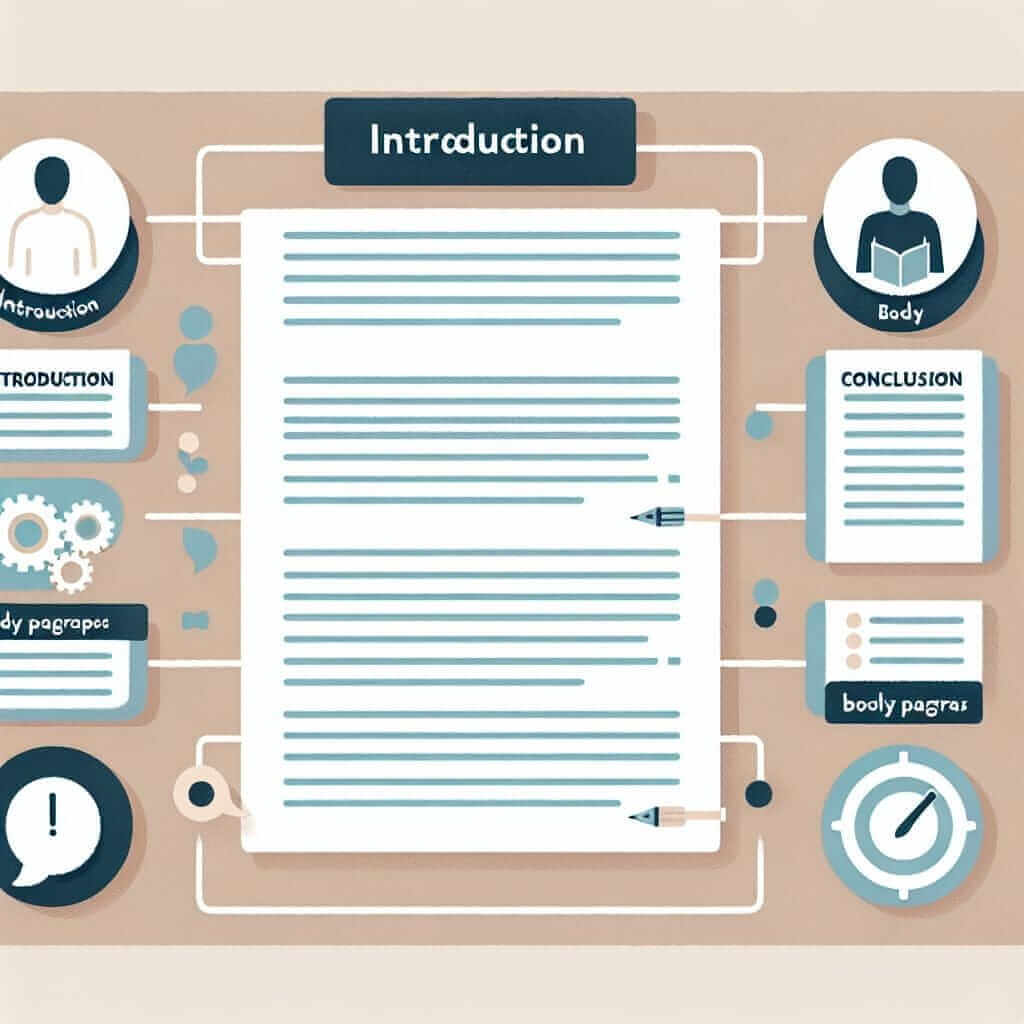Mastering IELTS Writing Task 2 is crucial for achieving a high IELTS score. This comprehensive guide, written by an experienced IELTS instructor with over 20 years of experience, will provide you with the knowledge and strategies you need to excel in this section.
Understanding IELTS Writing Task 2
IELTS Writing Task 2 assesses your ability to present a clear and well-structured argumentative essay on a given topic. You are expected to write at least 250 words within a 40-minute time limit. The task requires you to:
- Analyze the question: Identify the key instructions, topic, and your required position or point of view.
- Plan your essay: Brainstorm ideas, develop a clear thesis statement, and outline your supporting arguments.
- Write effectively: Use a range of vocabulary and grammatical structures, ensure coherence and cohesion, and support your ideas with relevant examples.
Strategies for Success
1. Analyzing the Question
Before you start writing, carefully read the question prompt and identify the keywords and instructions. This will help you understand the specific task requirements.
Example:
“Some people believe that the best way to improve public health is by increasing the price of unhealthy food. To what extent do you agree or disagree?”
Keywords: Public health, unhealthy food, price increase, agree/disagree.
Instructions: Express your opinion and provide supporting arguments.
2. Structuring Your Essay
A well-structured essay is essential for clarity and coherence. Follow this basic structure:
Introduction:
- Start with a general statement about the topic.
- Paraphrase the question and clearly state your position.
- Briefly outline the main points you will discuss.
Body Paragraphs (2-3 paragraphs):
- Each paragraph should focus on one main idea that supports your overall argument.
- Start with a topic sentence that introduces the paragraph’s main point.
- Provide evidence and examples to support your claims.
- Use linking words and phrases to ensure a smooth flow of ideas.
Conclusion:
- Summarize your main points and restate your position.
- Provide a final thought or recommendation (if applicable).
3. Using Effective Language
Vocabulary:
- Utilize a wide range of vocabulary related to the topic.
- Avoid repetition by using synonyms and paraphrasing.
- Use appropriate academic language, but avoid overly complex words.
Grammar:
- Employ a variety of grammatical structures accurately.
- Pay attention to subject-verb agreement, tense consistency, and article usage.
- Proofread carefully for grammatical errors.
4. Supporting Your Arguments
To strengthen your arguments, use a variety of supporting details:
- Examples: Illustrate your points with real-life or hypothetical examples.
- Statistics and Facts: Use relevant data to support your claims.
- Expert Opinions: Reference credible sources to add weight to your arguments.
- Personal Anecdotes (use sparingly): Briefly share personal experiences to connect with the reader.

Example IELTS Writing Task 2 Question and Answer
Question:
“In many countries, the tradition of families having meals together is disappearing. What are the causes of this trend? What are the consequences?“
Answer:
In an era marked by rapid societal shifts, the time-honored tradition of families sharing meals together is fading in many parts of the world. This essay will delve into the contributing factors behind this trend and examine the profound consequences it has on individuals and society as a whole.
One primary cause is the increasingly hectic pace of modern life. With both parents often working long hours and children engaged in numerous extracurricular activities, finding time for a shared family meal becomes a logistical challenge. Additionally, the pervasive influence of technology cannot be ignored. Smartphones, tablets, and televisions compete for our attention, creating distractions and hindering meaningful conversations during mealtimes.
The decline of family meals has far-reaching consequences. Firstly, it can negatively impact family bonds and communication. Sharing a meal provides a valuable opportunity for family members to connect, share their day, and strengthen relationships. Without this regular interaction, families risk becoming fragmented and emotionally distant. Secondly, studies have shown a correlation between regular family meals and improved dietary habits in children. When families eat together, children tend to consume healthier meals, leading to better overall nutrition and a reduced risk of obesity and other health issues.
In conclusion, the erosion of the family meal tradition is a concerning trend driven by the changing dynamics of modern life and the ubiquitous presence of technology. Its consequences are significant, affecting family cohesion and potentially impacting the health and well-being of individuals. It is imperative for families to prioritize and reclaim this valuable ritual to foster stronger bonds and promote a healthier lifestyle for all members.
Tips for Success
- Practice regularly: Write essays on a variety of topics to improve your skills.
- Get feedback: Ask a teacher or tutor to evaluate your writing and provide constructive criticism.
- Time yourself: Practice writing within the 40-minute time limit to improve your speed and efficiency.
- Read sample essays: Analyze high-scoring essays to understand the elements of effective writing.
- Stay informed: Keep abreast of current events and social issues, as they often appear as essay topics.
By following these strategies and dedicating consistent effort to improving your writing, you can approach IELTS Writing Task 2 with confidence and achieve your desired score.